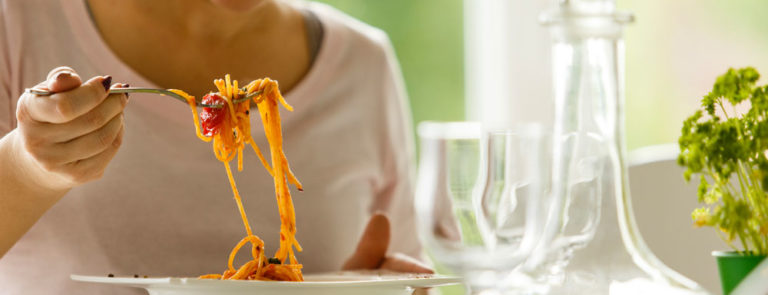15% off €35 OR 20% off €45
Code:SAVE
What is biotin? Uses and health benefits of vitamin B7

Biotin belongs to the B-group family of vitamins. Find out the function of biotin, its food sources, what deficiency looks like and taking supplements.
What's biotin and what does it do?
Biotin belongs to the B-group family of vitamins. It’s sometimes known as vitamin B7.1 We need biotin for:2
processing the nutrients from our food
energy release
healthy hair, skin and mucous membranes
normal nervous system and mental health
Biotin is a water-soluble nutrient, so we can’t store it in our body, but the bacteria that live in our guts can produce a small amount.3 Biotin is also found in a wide variety of foods, including liver, egg yolks and yeast.4
What does biotin do in the body?
Biotin has an important role in supporting the enzymes that break down the fat, protein and carbohydrates from the food we eat, turning them into energy.5 Biotin also helps us maintain normal healthy hair and skin.6 Our bodies use it to enable cells to reproduce properly, and skin and hair have a high cell-turnover. Together with other B vitamins, biotin also supports normal psychological and nervous system function7 by helping to maintain neurons in the brain.
How much biotin do I need?
Adults, including pregnant women, need 40mcg of biotin every day. Breast-feeding women need slightly more: 45mcg.8
How much biotin do children need?
6 months to 1 year – 6mcg a day
1-3 years – 20mcg
4-10 years – 25mcg
adolescents – 35mcg9
Biotin foods
Which foods are the best sources of biotin?
The best animal-based sources of biotin include:10
- beef liver
- cooked eggs – absorption of biotin is blocked by a protein in raw egg whites
- salmon
- pork
- dairy products such as milk and cheese
- sweet potato
- roasted almonds
- spinach
- broccoli
- bananas
Biotin deficiency
What are the symptoms of biotin deficiency?
Biotin deficiency is very rare because it is found in so many foods. If it does occur, symptoms include:12
- hair loss dry,
- flaky skin
- a rash on the face
- tiredness and muscle pain
- depression
What happens if I consume too much biotin?
Biotin is a water-soluble vitamin, so you’ll get rid of any excess in your urine. However, EU guidelines recommend not consuming any more than 970mcg per day because there’s a lack of evidence about the harm caused by taking higher doses.13
Biotin supplements
When should I take biotin supplements?
Most people can get enough biotin by eating a balanced diet as it’s contained in such a wide range of foods.14 However, particular medications, like antibiotics, or digestive conditions such as colitis, can prevent your body absorbing nutrients efficiently. These people could consider taking a supplement.15
Should children take a biotin supplement?
Like adults, children should be able to get all the biotin they need from a healthy, balanced diet.
Should women take a biotin supplement during pregnancy?
Research suggests that women are at risk of a mild biotin deficiency during pregnancy, particularly in the first trimester.16 But taking high doses of biotin could harm the baby. A specially formulated prenatal supplement will contain all the nutrients you need, including biotin, in the right amounts but check with your doctor if you’re unsure.
What are the potential benefits of taking biotin supplements?
Many people with a biotin deficiency develop hair loss or dry skin, so it’s thought that increasing your biotin intake may help improve your hair, skin and nail health. While there are only a small amount of studies in this area, there has been some reported success. A 2007 study published in Journal of Drugs in Dermatology reported that taking 2.5mg of biotin a day could improve brittle nails,19 while a review of clinical trials in 2018 concluded that biotin could improve firmness, hardness and thickness of brittle nails, but called for larger trials to be carried out.
Advice is for information only and should not replace medical care. Please check with your GP before trying any remedies.
Written by Madeleine Bailey on 7 December, 2018 Reviewed by Dr Sarah Schenker on December 17, 2018
1. Christian Nordqvist. Medical News Today. Why do we need biotin, or Vitamin B7?
2. European Commission. EU Register on Nutrition and Health Claims
3. NHS. B vitamins and folic acid
4. As Source 1
5. Hrefna Palsdottir. Medical News Today. What are the health benefits of biotin?
6. As above
7. As Source 2
8. European Food Safety Authority. Scientific Opinion on Dietary Reference Values for biotin
9. As above
10. National Institutes of Health: Office of Dietary Supplements. Biotin: Fact Sheet for Health Professionals
11. As above
12. Kimberly Holland. Healthline. Biotin deficiency
13. Expert Group on Vitamins and Minerals. Safe Upper Limits for Vitamins and Minerals 2003
14. As Source 3
15. As Source 12
16. Mock DM, Quirk JG, Mock NI. Marginal biotin deficiency during normal pregnancy
17. Cara J Stevens. Healthline. Health benefits of biotin
18. Scheinfeld N, Dahdah MJ, Scher R. Vitamins and minerals: their role in nail health and disease
19. Lipner SR, Scher RK. Biotin for the treatment of nail disease: what is the evidence?



